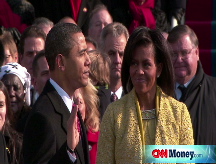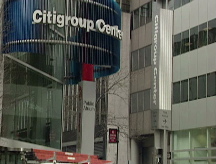How to spend $550B? GOP to have say
Republicans have made it clear they're not happy with the Democrats' proposal, but this week they'll be able to propose changes formally.
NEW YORK (CNNMoney.com) -- The congressional battle over President Barack Obama's unprecedented and far-reaching plan to spend $550 billion to jolt the economy will begin in earnest on Wednesday.
The House Appropriations Committee will meet to consider the spending portion of the House Democrats' $825 billion economic recovery proposal. The meeting will be the first time House Republicans will get to formally weigh in with their concerns about -- and changes to -- the legislation.
The hearing marks a crucial step in what is likely to be a compressed debate over what is one of the most complex and expensive spending plans ever introduced.
While Obama, who took office Tuesday, enjoys broad public and congressional support, Republican opposition to specific stimulus proposal has started to surface.
A preview of those concerns was offered last week by Republicans on the House Appropriations and House Budget Committees. Appropriations Ranking Member Jerry Lewis, R-Calif. Lewis itemized a sampling of measures in the bill costing $25 billion that in the view of the House GOP did not qualify as provisions that would stimulate the economy and create jobs.
"There is an immediate need for Congress to produce a strong and definitive plan - with measured investments in federal projects and programs - to help our nation weather this financial storm," Lewis said in a statement.
But, Lewis said, the House Democrats' proposal "does not contain the kind of targeted investments to keep our economy stable, spur significant job creation, or provide taxpayers with economic results worthy of their investment."
His spokesman said that among Republicans' concerns is that "this [proposal] pays forward on a lot of programs that don't have anything to do with stimulus."
In their summary of the bill, the Democrats said they want the package to "jumpstart our economy and begin the process of transforming it for the 21st century." Meanwhile, President Obama and his advisers have said parts the bill are intended to be investments "that will produce long-term benefits for the long-term health of our economy."
House Budget Republican members believe that the down-payment nature of some of the measures will do less to stimulate the economy than obligate Congress to continue to spend generously on various programs.
"The [plan] creates numerous funding 'cliffs' in which programs will receive large sums of additional cash that will supposedly run out, creating immense pressure to maintain these inflated funding levels," the Republicans said in a statement.
They and Lewis point to the $15.6 billion to temporarily increase the maximum Pell Grant for undergraduates by $500, from $4,360 to $4,860.
House Democrats included the Pell Grant increase as one of the items to "help our kids compete with any worker in the world."
"This will help an estimated 800,000 additional students, so overall an estimated 7 million students will receive Pell Grants in 2009-10," said college financial aid expert Mark Kantrowitz, publisher of FinAid.
But after two years, House Budget Republicans said, "this funding vanishes, meaning a student attending school with the help of a Pell Grant will face a sudden and sharp decline in financial support." And, they say, while "spending on education ... may be worthwhile ... it will not provide an immediate stimulative impact."
Among the smaller items Lewis highlights is $650 million to extend a coupon program and consumer outreach to consumers with analog televisions so that they can get digital TV converter boxes.
He also cites the $50 million in funding for the National Endowment of the Arts.
"I'm scratching my head trying to determine how items like $50 million in funding for the National Endowment for the Arts will create jobs or provide relief for families across the country," Lewis said.
In the text of their bill, House Democrats wrote that the measure will "fund arts projects and activities which preserve jobs in the non-profit arts sector threatened by declines in philanthropic and other support during the current economic downturn."
Republicans in the House will also weigh in on the tax portion of the stimulus proposal on Thursday, when the House Financial Services Committee meets for its mark-up. It's not yet clear when the Senate tax and spending committees will take up the bill. ![]()



